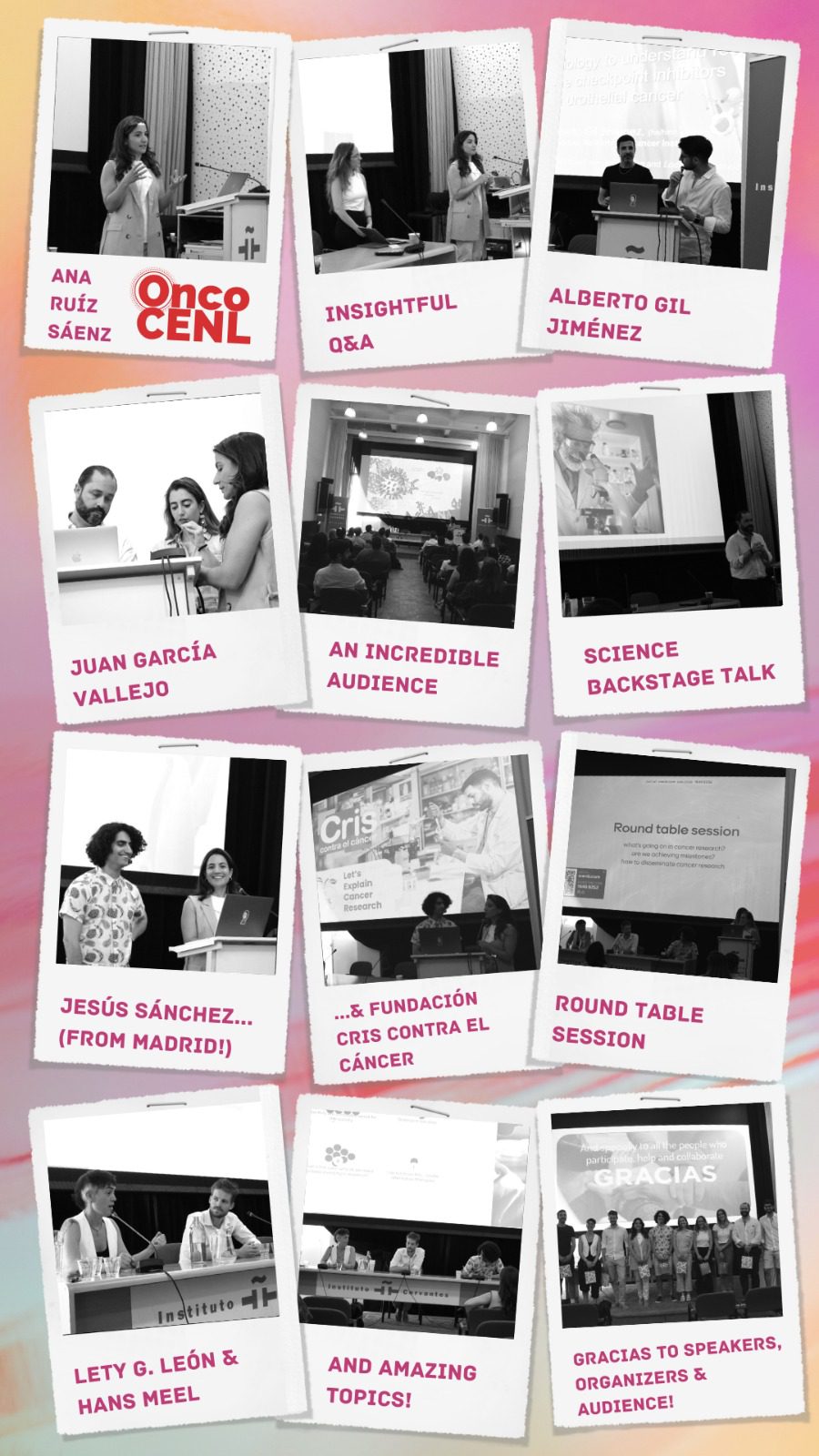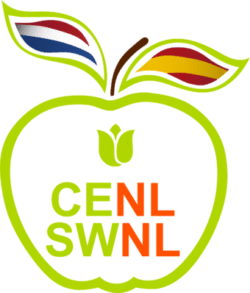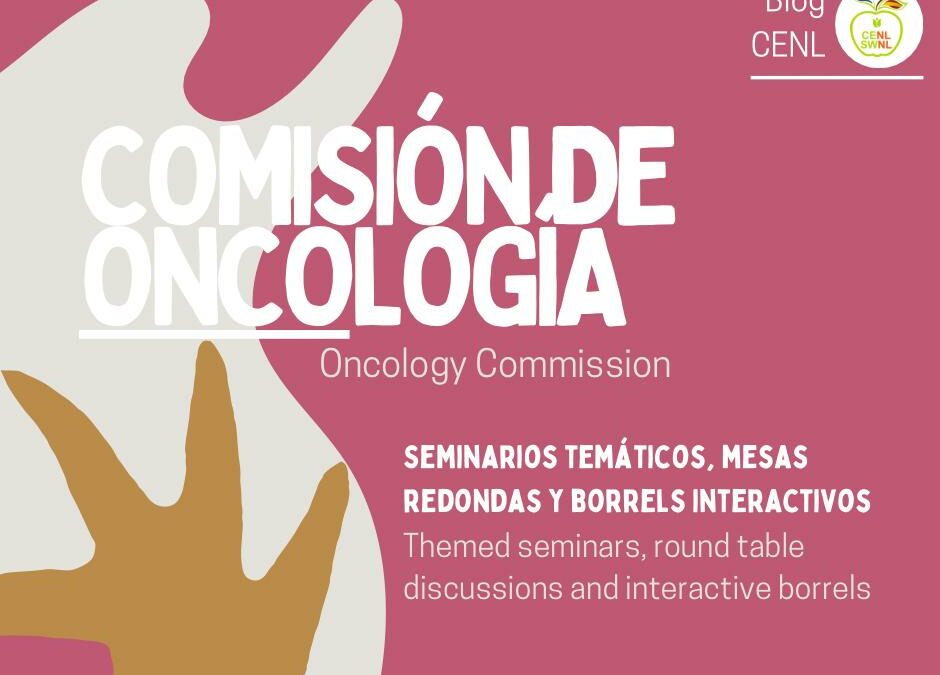One of the short/medium term objectives of our association is to promote interaction between Spanish scientists in the Netherlands. This is intended at a global and interdisciplinary level but also specifically through actions that put professionals in a certain area (and those interested in it) in contact with each other.
The creation of these thematic commissions is being carried out progressively. In 2022 we were able to successfully carry out two editions of NeuroCENL, organized by the Neuroscience Commission, a series of conferences in Neuroscience to celebrate the 170th anniversary of Cajal’s birth. This year we have decided to accommodate another great field that occupies many scientists in the association: cancer. For this reason, together with the Oncology Commission, we have had the opportunity to organize the first edition of OncoCENL, a series of conferences on cancer research. In addition, we have had the support of the sponsorship of the Embassy of Spain (The Hague).
This event took place last Saturday, June 24, 2023 from 11:00 a.m. in the auditorium of the Instituto Cervantes in Utrecht, to whom we are very grateful for their collaboration, especially Luis, who made everything easier . The language of this edition was English with the aim of increasing its reach and impact, thus promoting possible synergies with local researchers from the Netherlands.
It was quite a sunny day, but that didn’t stop more than 30 people from attending the event, and for that we are very grateful! We begin by presenting the Oncology commission, sister to the Neuroscience commission and made up of Andrea Vallés Martí, Aitor Tejo Otero, Davinia Arguedas, Sofía Ibañez and Ana Ruíz Sáenz, who were in charge of organizing the event.
Andrea introduced the first speaker of the series of talks, Dr. Ana Ruíz Sáenz, associate professor at Erasmus MC (Rotterdam), with the title “Cancer-immune conversations: the new social network controlling treatment efficacy”. Ana told us about how glycosylation patterns, crucial in cancer immunology, affect drug resistance. After a round of questions, Aitor introduced Alberto Gil Jiménez, a bioinformatics doctoral student at the Netherlands Cancer Institute (NKI, Amsterdam). Alberto, with the title “Computational Biology to understand response to immune checkpoint inhibitors in urothelial cancer” taught us how to predict the response to ‘immune checkpoint inhibitors’ in cancer patients using computational models. Before moving on to the round table, We had the opportunity to learn from Dr. Juan J. García Vallejo about the operation and management of advanced cytometry and microscopy scientific research facilities. Not only that, we also learned the ‘science of economics’ behind it. It was a very interesting first session!
After the break, we continue with the round table led by three exceptional scientists. Dr. Jesús Sánchez (Cris Cancer Foundation), Dr. Leticia G. León and Dr. Hans Meel (Princess Máxima and WKZ/UMC). First, we were able to learn a little more about the Fundación Cris contra el Cáncer and the work that Jesus does in communicating science through his comics (they are incredible!https://medinart.eu/works/jesus-sanchez-ruiz/), in addition to learning about the different grants for scientific return to Spain. We also recommend that you take a look here:https://criscancer.org/en/crisprograms/.
Next, we started the round table guided by Sofía, Davinia and Aitor. We begin by talking about issues such as sensationalism in the press and poor scientific communication when transmitting scientific results to society. It was also very interesting to know the opinions of the public through the Menti platform, which made the session very interactive. We also talked about the use of animal models and their current paradox: they are crucial to study in clinical phases, despite being ineffective when trying to replicate the results in humans. We end with questions about the use of computational models and ‘machine learning’ and their impact on diseases such as cancer, both in diagnosis and treatment. Also, we asked ChatGPT what he thought on the subject, and… well, you already know the answer😉.
We ran out of time to talk, as always, and we continued in a nearby Spanish bar with a networking session and tapas.
We had an incredible time, and we hope to organize many more editions.
From CENL we encourage you to be part of the thematic commissions, either by participating in the organization of events or creating content on social networks, etc. You will be able to meet incredible people from your field or various fields. Dare!
Thanks once again to all the speakers who said yes from the beginning, to the organizers for all their effort and dedication, as well as to those who attended that day. A special mention to the Embassy of Spain and the Instituto Cervantes who also made it possible once again. And of course, to our entire Board of Directors and the exemplary management of our president Rodrigo García Valiente. Everyone, DANKJEWEL!
Can you help us to become more? Become a member and participate. Spread our word on the networks. Contact us and tell us about yourself and your project.


Andrea Vallés Martí
Doctoranda en el Amsterdam UMC
Hizo la carrera de Biotecnología y comenzó pronto su interés por el estudio y la investigación en oncología, en concreto lo pudo hacer en los Países Bajos y en su capital Ámsterdam. Tuvo la oportunidad de integrarse en un proyecto científico, en el que sigue, quelucha contra el cáncer pancreático. Otro proyecto secundario estudia también posibles avances en el cáncer de pulmón, colon, mama y próstata.

